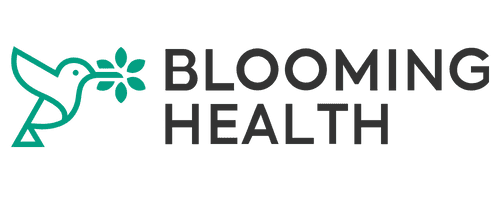Nov 5, 2025
On October 16, 2024, Public Health Solutions hosted an intimate Women's Salon in New York City, bringing together healthcare leaders, advocates, and change makers to discuss critical challenges facing women's health.
Among the speakers was Alex Grullon, Principal EnterpriseAccount Executive at Blooming Health, who shared a deeply personal story that illuminated a crisis hiding in plain sight: the crushing burden of healthcare navigation that falls disproportionately on women.
When the Navigator Needs Navigation
Alex's mother is a uterine cancer survivor. When her mother began treatment, Alex naturally stepped in to help coordinate care. She understood the healthcare landscape, knew the terminology, and had professional connections. And yet, as she candidly shared with the audience, she often crumbled under the pressure.
"During her treatment, I stepped in to help navigate the maze between health and social care services," Alex explained. "And while I watched her be so incredibly strong, to be honest, at times I did crumble under the pressure—figuring out what services were available and how to make sure I got everything right for her."
The Math Doesn't Add Up
Women make approximately 80% of healthcare decisions for their families. They're more likely to be caregivers—for children, aging parents, and spouses—and more likely to be patients themselves, particularly navigating pregnancy, postpartum care, menopause, and longer life expectancies.
This creates a perfect storm. Women are simultaneously:
Managing their own healthcare needs
Coordinating care for family members
Navigating fragmented systems across multiple providers
Balancing these responsibilities with work and other obligations
Often doing all of this while dealing with their own health challenges
As Dr. Chelsea Clinton noted during her keynote conversation with Lisa David, President and CEO of Public Health Solutions, when kids are exposed to illnesses like measles and sent home from school, it's overwhelmingly mothers who stay home. When misinformation creates panic, it's mothers making calls to pediatricians' offices. When a family member gets sick, it's most often women who become the default care coordinator.
"We have to figure out how to engage people, how to support them," David emphasized. "Because the burdens on women and the stigma associated with women have already started to grow."
The current healthcare system operates as if patients have unlimited time, perfect health literacy, seamless transportation, reliable childcare, and jobs with flexible schedules. It assumes patients can easily navigate to the right specialist, find appropriate community resources, and coordinate between multiple providers who may not communicate with each other.
The Partnership That's Making a Difference
Blooming Health's partnership with Public Health Solutions exemplifies how cross-sector collaboration can address systemic gaps in care. Together, they support women's health initiatives and the broader Medicaid population across New York City.
"Women's health and public health don't exist in isolation," Alex explained at the Women's Salon. "They live at the intersection of healthcare, policy, and social support. True transformation happens when we all work together."
As Dr. Susan Bean, Executive Medical Director of Health First, noted during the event: "We need organizations that are clear-eyed and focused on what women need, what girls need, what populations need. If we're ever going to improve the health of populations, it has to be more than just services and transactions. It has to be compassion, empathy, and being servant leaders."
This philosophy aligns with Blooming Health's approach, which extends beyond women's health to include partnerships with the New York State Office of Aging, ensuring older adults stay connected to care and community.
Building a Future Where Care Is a Promise, Not a Privilege
Alex closed her remarks with a vision: "Let's build a future where care is not a privilege, but a promise."
Achieving that vision requires acknowledging the invisible burden women currently carry and building systems that actively work to lift it:
Recognize that healthcare navigation is healthcare. Getting patients to the right care at the right time is as important as the care itself.
Invest in technology that serves people, not just institutions. Tools like Blooming Health's platform that send timely, personalized messages in patients' native languages, in over 80 languages, represent how technology should work in healthcare.
Build partnerships across sectors. No single entity can solve these challenges alone.
Center the voices of those most affected. Design solutions with the people who will use them at the center.
Support the supporters. Caregivers need care too, and the system should support rather than burden them.
Making the System Navigable for Everyone
"At Blooming Health, this is what we strive to do every single day," Alex explained. "We meet people where they are. We listen before we act, and we give a voice to those who often go unheard."
As Tanya Shah, longtime PHS board member, noted in her closing remarks: "There are literally millions of people in our community that all of the policies we talked about tonight directly affect."
Speak with our team to learn more about Blooming Health's work in streamlining access to care and supporting vulnerable populations, visit their website or reach out to explore partnership opportunities. To support Public Health Solutions' vital work providing healthcare services to New York's most vulnerable communities, visit their website.








